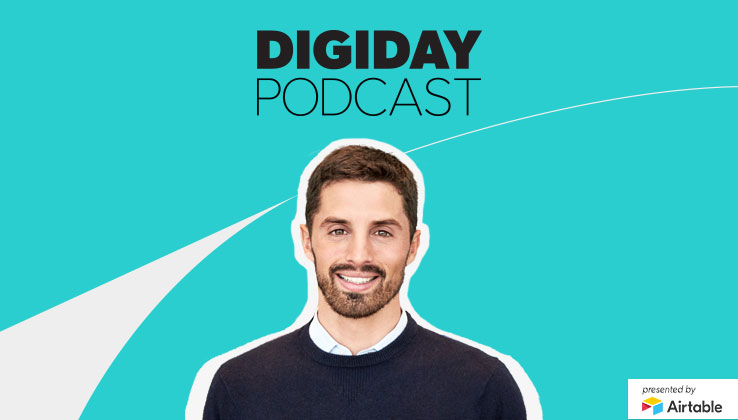Last chance to save on Digiday Publishing Summit passes is February 9
Mic’s Chris Altchek: Facebook’s news feed is not the place to build a loyal audience

Subscribe: iTunes | Google Play | Stitcher | Anchor
Last spring, digital publisher Mic raised $21 million in venture capital funding, and Mic Publisher Cory Haik said vertical expansion and social video were important revenue strategies for the company. A year later, in the wake of the Facebook news feed algorithm change and pivot to video, Mic co-founder and CEO Chris Altchek still believes in video and platform publishing, albeit cautiously.
“The news feed is changing very quickly. It will always be a part of your marketing mix,” said Altchek on this week’s Digiday Podcast. “It’s an incredible way to reach a lot of people quickly. But it’s not the place to build a loyal audience.”
Altchek discusses publishing on platforms, developing video journalism, attracting advertisers to a purpose-driven brand and more on the episode. Edited highlights appear below:
Mic’s approach to video
“We started focusing on taking our voice and turning it into what we found most successful with audience. We thought of [our video] as a ‘60 Minutes’ for our generation. That’s the kind of reporting Mic has been doing in video for a year now, and it’s been successful on Facebook and other platforms. It’s taken us time to develop our voice and style in video formats. For us, it’s not doom and gloom because the audience wants this kind of journalism.”
Platforms need journalism
“In 2017, we realized we’d hit on something. Our KPIs have oriented from views to time spent. It’s different per platform. Twenty percent of people who come across our videos watch the majority of them. There are a bunch of platforms that need this kind of journalism. The platforms have started to restructure their business models to be able to support this type of work. That’s really promising. By the end of this year, all of our work that shows up on a social platform will be paid for.”
Brands are becoming purpose-driven
“Why our ad business is growing and continuing to grow is because companies are realizing that they need to be purpose-driven in every way they need to operate. More companies behave like activists. Doing the right thing is starting to live at the center of their marketing strategies. Mic is so squarely in that world that we have a unique advantage there. When you want to get stories out, one of the most effective channels to do that is social advertising. It’s native advertising.”
Vertical expansion makes sense
“News is a category that advertisers take some time to get their head around. A lot of journalism we do is not hard news, so having clear categories helps. A lot of advertisers want to flee news, but a lot of them care about it much more. A lot of big Fortune 100 companies released statements when Charlottesville happened. A lot of them are our clients, and our brands team talks them through what the right message is.”
More in Media

In Graphic Detail: The scale of the challenge facing publishers, politicians eager to damage Google’s adland dominance
Last year was a blowout ad revenue year for Google, despite challenges from several quarters.

Why Walmart is basically a tech company now
The retail giant joined the Nasdaq exchange, also home to technology companies like Amazon, in December.

The Athletic invests in live blogs, video to insulate sports coverage from AI scraping
As the Super Bowl and Winter Olympics collide, The Athletic is leaning into live blogs and video to keeps fans locked in, and AI bots at bay.








